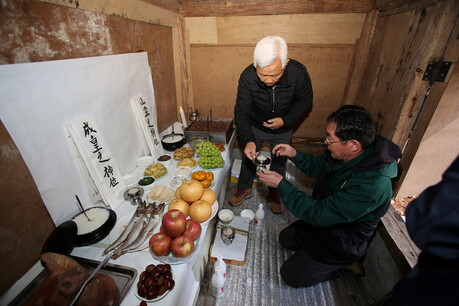Titled "Dare to Look," the groundbreaking exhibition showcases 171 photographs that span Errázuriz's entire career, offering visitors an extensive look at her powerful body of work that consistently challenges social norms and official historical narratives. Despite having achieved considerable international recognition over the years—including exhibitions at the prestigious Venice Biennale and having her photographs acquired by major institutions such as Tate, the Museum of Modern Art (MoMA), and the Reina Sofía—this marks the first time Errázuriz has been the subject of a solo exhibition at a British institution.
"Even late in life, recognition is possible," Errázuriz reflects on this career milestone. "How long does it take for a woman to be recognized for her work?"
Born in Santiago in 1944, Errázuriz's path to photography was not straightforward. Though she harbored dreams of studying art, her parents strongly disapproved of this pursuit, leading her to train as a teacher instead. It was during her studies at the Cambridge Institute of Education in the early 1970s that her passion for photography first emerged, though financial constraints prevented her from pursuing it at the time.
"I always wanted to have my camera," she recalls. "But my life was that of a student—I couldn't afford it." Her serious engagement with photography only began later when she returned to Chile, inspired by a friend's father who had set up a darkroom.
From the beginning, Errázuriz was drawn to human subjects rather than landscapes or abstract compositions. "I don't do landscapes," she explains. "It's how to get to people. And I found out that the camera was the best tool I had in my hands."
The trajectory of her career was significantly shaped by Chile's political upheaval. Following the military coup in 1973, Errázuriz lost her teaching position and made the decision to pursue photography full-time. During this turbulent period, she co-founded the Asociación de Fotógrafos Independientes (Association of Independent Photographers), an organization dedicated to documenting civil unrest while also providing protection for freelance photographers working under dangerous conditions.
"We weren't part of the newspapers. We were independent," she explains about their approach to photojournalism during the dictatorship. "You learn how to move, you have instincts. You smell when danger is near."
Working under the constraints of an authoritarian regime profoundly influenced Errázuriz's artistic approach. She describes the experience as "learning to speak in metaphors." While this wasn't a conscious artistic choice initially, she notes that "it wasn't planned, but the result was naturally metaphorical."
Errázuriz has become renowned for her patient, immersive methodology when working with her subjects. "Nobody asked me to do this work," she emphasizes. "I planned my way. I never photograph anyone straight away—I talk, I record, I take notes. Sometimes it takes weeks. You have to be patient. You also have to be obsessed."
This approach is perhaps best exemplified in one of her most emotionally powerful series, "El Infarto del Alma" (The Soul's Heart Attack), which depicts couples living in a psychiatric hospital. To create this work, Errázuriz actually lived in the hospital for months, building deep relationships with the patients and staff.
"Photography became a generous gesture for them," she reflects on the experience. She recalls one particularly touching story: "There was a real couple who lived together on the ward in the hospital. They wanted to get married. When I left, I gave them their portraits. They treated them like certificates of marriage."
Looking back at these images now, decades later, Errázuriz experiences a mix of emotions. "Some are very sad," she admits. "In Adams Apple, most of the people died of AIDS. I know their stories—I spent so much time with them. They're like my family."
When asked what advice she would give to her younger self, Errázuriz offers wisdom gained from decades of experience: "Be patient. Nothing is immediate. You must take time—and believe in what you're doing."
The exhibition "Paz Errázuriz: Dare to Look" will remain on display at MK Gallery in Milton Keynes until October 5, offering visitors a rare opportunity to experience the complete scope of this remarkable photographer's career and her unwavering commitment to giving voice to Chile's most vulnerable communities.





























